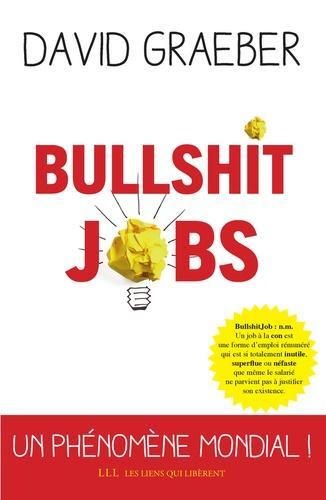mischk@wyrms.de a publié une critique de Bullshit Jobs par David Graeber
Bullshitjobs und schlechtbezahlte nützliche Jobs
4 étoiles
David Graeber fragt sich, warum in einer kapitalistischen Gesellschaft so viele Jobs entstehen können, die offenbar keinen Sinn ergeben, wirtschaftliche unnötig sind und die Menschen, die dort arbeiten müssen, unglücklich machen. Eine Antwort hat er eigentlich nicht. Das Buch ist dennoch eine sehr gute Auseinandersetzung mit der kapitalistischen Arbeitsgesellschaft. Einige Kapitel lang wird die sehr interessante und wichtige Frage erörtert, warum gesellschaftlich sinnvolle Tätigkeiten im Gegensatz zu unnützen oder schädlichen Tätigkeiten so schlecht bezahlt werden. Als Lösungsvorschlag präsentiert Graeber das bedingungslose Grundeinkommen. Naja, das war etwas einfallslos, aber gut. Warum nicht. Es lohnt sich auf jeden Fall, seine Denkanstöße weiterzudenken. Vielleicht fällt „uns“ ja noch was besseres ein.
David Graeber fragt sich, warum in einer kapitalistischen Gesellschaft so viele Jobs entstehen können, die offenbar keinen Sinn ergeben, wirtschaftliche unnötig sind und die Menschen, die dort arbeiten müssen, unglücklich machen. Eine Antwort hat er eigentlich nicht. Das Buch ist dennoch eine sehr gute Auseinandersetzung mit der kapitalistischen Arbeitsgesellschaft. Einige Kapitel lang wird die sehr interessante und wichtige Frage erörtert, warum gesellschaftlich sinnvolle Tätigkeiten im Gegensatz zu unnützen oder schädlichen Tätigkeiten so schlecht bezahlt werden. Als Lösungsvorschlag präsentiert Graeber das bedingungslose Grundeinkommen. Naja, das war etwas einfallslos, aber gut. Warum nicht. Es lohnt sich auf jeden Fall, seine Denkanstöße weiterzudenken. Vielleicht fällt „uns“ ja noch was besseres ein.






